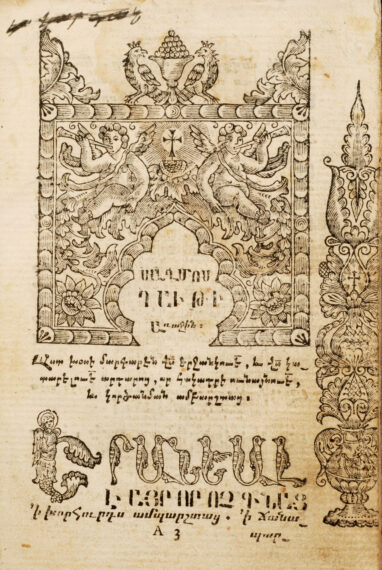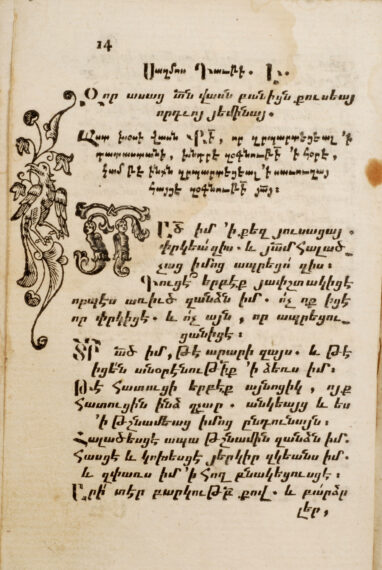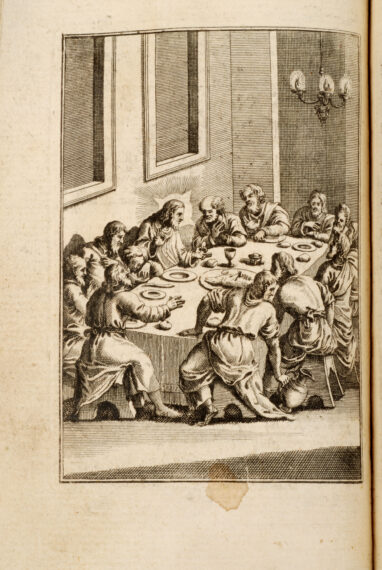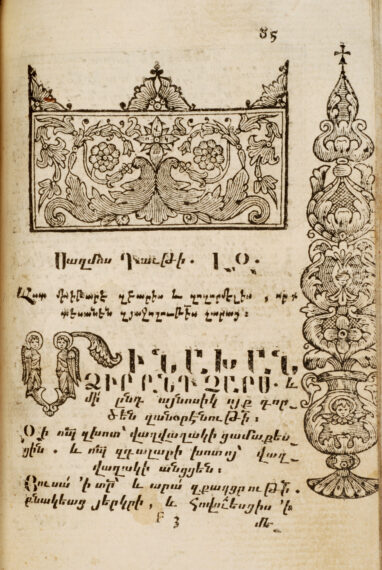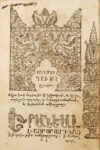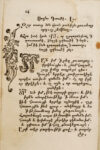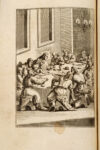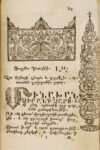PSAUTIER
Printed, first half of the 18th century. Venice
PSAUTIER
Printed, first half of the 18th century. Venice
H 155mm / W 106mm
Cover page. First book of the psalms of David. Decor engraved with cherubs. Frame surmounted by two crowned phoenixes, in the right margin, plant ornament coming out of a vase and running all along the page, in the style of the manuscripts.
Owing to the sacred value attributed by the Armenian people to the handwritten book, the printed book did not supersede it until the 19th century, almost three hundred years after the first publication of a book which came off the press in Venice in 1511. In its early days the printed book was, unlike manuscripts, exclusively the work of the diaspora. It was in Europe that the first works were published, initially in Venice and later in Amsterdam, where the first Bible was printed in 1666. The texts published in the 16th and 17th centuries were sometimes of religious, sometimes historical, and sometimes scholarly nature.
In the 18th century, Venice underwent a revival thanks to the considerable work of Abbot Mekhitar of Sebaste. The typography workshop on the island of San Lorenzo, opposite Venice, published a number of classical Armenian works, as well as translations of European literary works for use by students, historical and philological studies, and the 1837 dictionary, which is still the authoritative reference today.
It was only in the 19th century, however, that printing really took off with the secularization of culture which, until then, had been disseminated under the quasi-monopoly of the Church.
The replacement of the classical language by modern Armenian and the development of the press completed this evolution.
This heralded the birth of modern literature.
The printed book is no longer just an edition of the manuscript.
It now became an instrument of modern thought.
The Gospel according to St. Matthew. Chap.26
When evening had come, He sat down with the twelve.
Now as they were eating, He said,
“Assuredly, I say to you, one of you will betray Me.”
And they were exceedingly sorrowful, and each of them began to say to Him,
“Lord, is it I?” “He answered and said,
“He who dipped his hand with Me in the dish will betray Me.
The Son of Man indeed goes just as it is written of Him,
but woe to that man by whom the Son of Man is betrayed!
It would have been good for that man if he had not been born.”
Then Judas, who was betraying Him, answered and said,
“Rabbi, is it I?” He said to him, “You have said it.”
